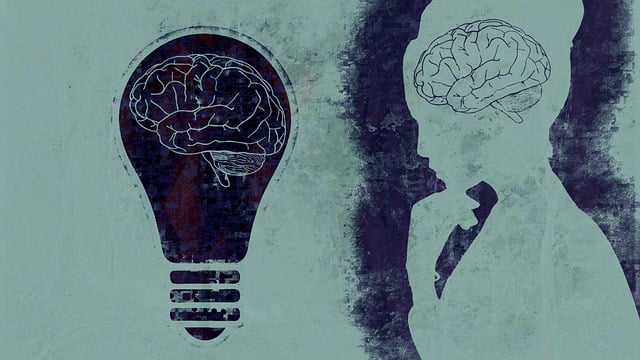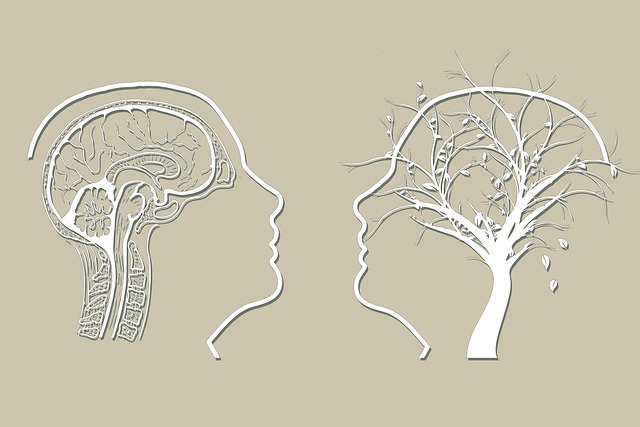Cultural competency is essential for effective substance abuse treatment in diverse communities like Longmont, shaping therapy approaches based on cultural contexts and mental health beliefs. Integrating specialized training equips healthcare providers to offer tailored care, improving trust and outcomes. Addressing biases through training, focusing on unique community challenges, and incorporating cultural scenarios enhances inclusivity, leading to better patient outcomes in Longmont Drug Abuse-Substance Abuse Therapy, especially for depression prevention.
“In today’s diverse healthcare landscape, cultural competency is paramount, especially within specialized areas like substance abuse therapy. This article explores the critical need for cultural competency training among healthcare providers in Longmont, focusing on improving drug abuse treatments. We delve into the challenges posed by unaddressed cultural biases and their impact on patient outcomes. Additionally, effective training strategies are presented to enhance cultural sensitivity, ultimately fostering better patient care and more inclusive treatment environments for Longmont’s diverse population.”
- Understanding Cultural Competency in Healthcare: Addressing Drug Abuse Therapies
- The Impact of Cultural Biases on Substance Abuse Treatment Outcomes
- Designing Effective Training Programs for Healthcare Providers in Longmont
- Strategies to Enhance Cultural Sensitivity and Improve Patient Care
Understanding Cultural Competency in Healthcare: Addressing Drug Abuse Therapies

Cultural competency is an essential aspect of healthcare delivery, especially when addressing drug abuse and substance use disorders in diverse communities. In Longmont and other areas with varying cultural backgrounds, healthcare providers must be equipped to offer sensitive and effective treatment for addiction. This involves understanding the unique cultural contexts that influence a patient’s relationship with substances and their journey towards recovery. For instance, recognizing that certain communities may have specific beliefs about mental health and substance abuse can significantly impact therapy approaches.
Integrating cultural competency training into drug abuse therapy programs equips professionals to deliver tailored care. This includes learning about different cultural practices related to healing, family dynamics, and community support systems. By incorporating these insights, therapists can adapt evidence-based practices like Depression Prevention, Resilience Building, and Conflict Resolution Techniques to suit individual patient needs. Such an inclusive approach not only enhances the effectiveness of treatment but also fosters a sense of trust between healthcare providers and patients from diverse cultural backgrounds, ultimately improving outcomes in Longmont Drug Abuse-Substance Abuse Therapy.
The Impact of Cultural Biases on Substance Abuse Treatment Outcomes

Cultural biases among healthcare providers can significantly impact the outcomes of substance abuse treatment, particularly in diverse communities like Longmont. When therapists or counselors hold implicit or explicit prejudices against certain cultural groups, it creates a barrier to effective care and can lead to poor treatment results for patients struggling with addiction. For instance, an Asian American patient might face stereotypes related to mental health that influence their willingness to seek help or the type of support they receive.
This bias can manifest in various ways during therapy sessions. It may result in misdiagnosis, inappropriate treatment plans, or a lack of understanding of cultural nuances and practices that are essential for successful recovery. Addressing these biases through specialized training, such as mental health policy analysis and advocacy, crisis intervention guidance, and mood management techniques tailored to diverse populations, is crucial. Such initiatives ensure that healthcare providers in Longmont Drug Abuse-Substance Abuse Therapy can offer culturally competent care, ultimately improving patient outcomes and fostering better relationships within the community.
Designing Effective Training Programs for Healthcare Providers in Longmont

In designing effective training programs for healthcare providers in Longmont, it’s crucial to address the unique needs and challenges faced by this community. Given the prevalence of drug abuse and substance use disorders, integrating education on mental health and addiction into training curricula is essential. Programs should encompass both theoretical knowledge and practical skills, ensuring providers are equipped with the latest evidence-based practices for assessment and treatment. For instance, teaching mind over matter principles can offer valuable tools for anxiety relief among patients, enhancing overall well-being.
Additionally, risk assessment for mental health professionals plays a pivotal role in preventing burnout and promoting resilience. Training should equip practitioners with strategies to manage stress, navigate ethical dilemmas, and maintain professional boundaries. By combining these elements, Longmont’s healthcare providers can offer comprehensive care that holistically addresses physical and mental health concerns, particularly within the context of drug abuse-substance abuse therapy.
Strategies to Enhance Cultural Sensitivity and Improve Patient Care

Cultural sensitivity is a cornerstone of quality patient care, and healthcare providers play a vital role in fostering inclusive environments. Training programs should incorporate diverse scenarios to educate staff about navigating different cultural backgrounds, beliefs, and communication styles. Encouraging active listening and open-mindedness allows professionals to better understand patients’ unique perspectives, ensuring respect for their autonomy and dignity. By promoting these principles, healthcare organizations can create a welcoming atmosphere, especially in communities like Longmont where drug abuse-substance abuse therapy is essential.
Implementing strategies that focus on self-esteem improvement and mind over matter principles can significantly enhance cultural competency. Encouraging patients to share their personal stories and experiences, while maintaining confidentiality, provides valuable insights. Additionally, training should emphasize the importance of culturally sensitive communication, ensuring providers are equipped with tools to address depression prevention and other mental health concerns effectively.
Cultural competency training is a game-changer in healthcare, especially for addressing substance abuse therapies in Longmont. By understanding and overcoming cultural biases, healthcare providers can significantly improve treatment outcomes for drug abuse patients. The strategies outlined in this article, including effective training programs tailored to local needs, ensure that Longmont’s diverse community receives sensitive and culturally responsive care. Investing in cultural sensitivity enhances patient satisfaction and overall health outcomes, making it a crucial step forward in the world of substance abuse therapy.














